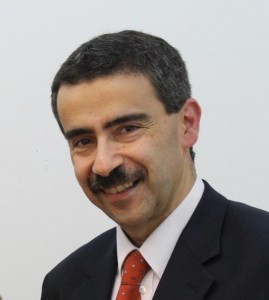While inflation has a general effect on prices, Adrian J Galea, Director General of IAM indicated that there is no immediate direct link between the fee increases and higher insurance premiums.
“We cannot say that as a direct reaction to the changes in fees there will be a direct impact on insurance costs immediately,” he said, in comments made to WhosWho.mt.
The recent introduction of higher fees for financial services operators by the Malta Financial Services Authority (MFSA) has drawn criticism from various stakeholders, but the Insurance Association Malta (IAM) has adopted a more measured stance.
The new fee structure, which came into effect 1st January 2025, includes a range of increases for banks, insurance agents, and other entities, sparking concerns over the potential impact on the sector and its clients.
The fee increases include a sharp 100 per cent rise in certain cases. An insurance agent or broker previously paying an application fee of €175 will now face a charge of €200 in 2025, which will increase to €300 by 2029. Additionally, the annual supervisory fee for agents and brokers will rise from €200 to €250 in 2025, eventually doubling to €400 by 2028.

Adrian J. Galea Malta, Insurance Association Director-General
The MFSA, as Mr Galea explained, had taken steps to inform stakeholders about the proposed changes. “The Insurance Association Malta (‘IAM’) was informed of the changes in advance and we were given the opportunity to comment,” he said.
Regular meetings with stakeholders allowed IAM to communicate these updates to its members.
The fee increases are significant, with application fees and annual supervisory fees doubling in some cases. However, Mr Galea noted that this must be viewed in context. “Since the last revision that took place 10 years ago, Malta has seen a period where inflationary pressures were quite elevated throughout most of the latter years, which has pushed up costs including wages,” he said.
These pressures also affect the MFSA, which now employs hundreds of people and faces growing resource demands due to increased regulatory obligations.
Balancing cost and competitiveness
While acknowledging the financial burden these increases place on the sector, Mr Galea highlighted the importance of a well-resourced regulator. “It is in license holders’ interest that MFSA has the appropriate resources to function well and that there are no idle resources or inefficiencies,” he said.
Mr Galea also pointed to a broader issue affecting smaller jurisdictions like Malta: The one-size-fits-all approach to regulation adopted at the European level. “Europe must understand that the concept of proportionality has not worked well, and a one-size-fits-all approach is detrimental to Malta, both the MFSA and the license holders,” he added.
Despite the challenges, IAM views the MFSA’s efforts as balanced. “Overall, we feel that the MFSA has made an effort to be measured in its changes to fees, but we remain vigilant. It is important to keep Malta as a competitive jurisdiction,” Mr Galea stated.
As for the reaction among IAM members, Mr Galea emphasised that the association had facilitated discussions on the proposed changes.
“The responses provided above basically reflect the sentiment of such a discussion,” he noted, underscoring the importance of maintaining open lines of communication between the regulator and the industry.
